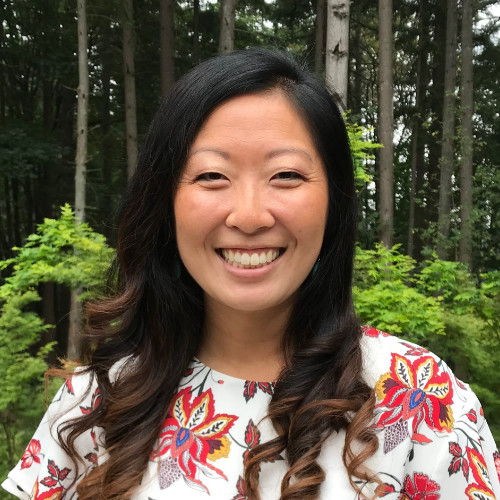About the series: We dig into the stories of SESEC program participants and their growth as leaders in the Southend community. We follow how they have developed new skills and undertaken or improved their projects as a result of SESEC programming.
Katie Wallace participated in SESEC’s Seeking Educational Equity and Diversity (SEED) program in 2021 when she was the Senior Program Manager of Community-Based Internships at the UW. Now, she is the Director of Student Leadership & Engagement at Seattle Central College.
SEED is a seminar and discussion-based program facilitated by SESEC for community members to consider their own experiences and those of their students, children, and colleagues to make their communities more inclusive.
As a result, SEED is a special place for BIPOC community members to convene and discuss topics of identity in a welcoming environment, especially for Wallace, who is an adoptee.
“I live and breathe race in a really unique way every day. There are just only a few spaces where you really get to dive into what that looks like and learn from other people about how they move through to both people of color and white folks,” Wallace said, “I think that’s also what made that cohort experience really unique.”
What further makes the program stand out is its geographic hyperfocus in Southeast Seattle, where community ties are strong. Wallace has been involved in the local Seattle Public Schools for a decade, teaching Spanish at Garfield, Chief Sealth, Cleveland, and Rainier Beach High Schools.
“Even since I was in middle school and high school, I always wanted to attend Beach. I even took my SATs at Rainer Beach, and then I actually think I ended up teaching in the classroom where I took my SATs,” she reminisces.
Today, she lives in the Columbia City neighborhood and serves the community in her capacity at Central College in student leadership.
“I think what we do in the classrooms is so important, and what students experience outside of the classroom and on campus, and that sense of community is even more so,” she said, “students need the opportunity to connect with one another and to make meaning of those other interactions that they’re having with each other. So that’s what motivates me about student leadership.”
Looking back on her participation in SEED, she highlights how she still uses the material in her professional work today, referring back to a set of slides given to members after the program.
“SEED provided a really thoughtful, meaningful space around grief. As I was reviewing the slides and remembering that period of time, a really unique space and group of people where you can both name it, acknowledge it and talk through it and continue to move forward without just like, pushing it aside,” she said.
When asked what Wallace would recommend to those considering applying to SEED, she emphasized it was a great way to meet people in the community and network. She also highlighted the importance of the curriculum and how she took away tangible aspects of the program, such as the way artwork is incorporated.
“I just admire the intentionality behind the way that the curriculum is built and how it’s facilitated the scaffolding, like, everything is really well thought out,” she says, “Then also, the artistic element really stands out to me.”
The 2025 SEED application form will likely open Dec 2024-Jan 2025 on the SESEC website.
